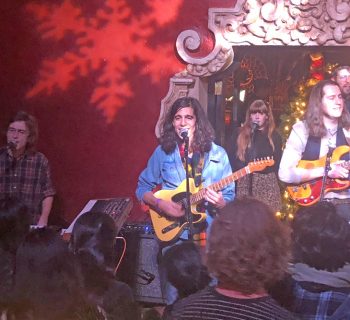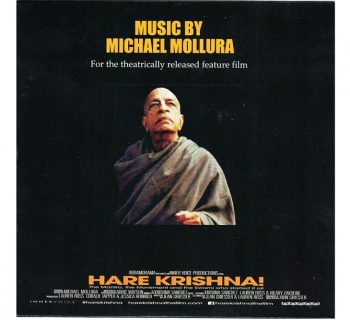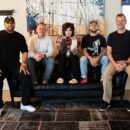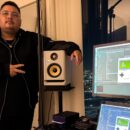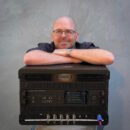Self-education is a process that is as old as our world. Our ancestors developed housing, means of conveyance and art without formal education (referred to as autodidactism). Many successful people have blossomed from self-education over thousands of years. In modern times, self-education takes the form of absorbing information from reputable sources, applying that information and repeating the process. How do we self educate in the music industry and where do we begin?
Many articles and columns will say to begin by defining your goal. However, a bit of self-exploration should happen before any goal is specified. First, define who you want to be in the music industry. Often times I caution aspiring individuals against painting with broad strokes in this area. For example, someone who wants to be an artist, producer AND a DJ right from the very beginning of their career is facing a taller task than someone who is dialed in to one specific trade. The individual who wants to hold all of those titles will be spreading their time, commitments and energy across all three of those career paths, as opposed to the person who puts all of their effort into mastering a single craft. That is not to say after becoming a productive, professional producer that a career as a DJ is out of the question. Quite the contrary. The skillset and sharpened decision-making learned as a producer will benefit the pursuit of becoming a DJ, plus the connections made during your time a producer will help finesse the process. Before any sort of goal is defined, clearly determine who you are, who you want to be and what you want to accomplish.
Next on the list is arranging the studying environment. This should be a comfortable space, yet designated and formalized (laying in bed isn’t going to cut it here). A desk with your computer, reading materials and gear is a great start, but remember to keep it clean and free of clutter. You will need to absorb material at a rapid pace, then apply it in a practical fashion immediately afterwards. Streamlined versions of self-education require deep thought and focus, so last night’s dinner plate should not be in our learning space.
Keep a planner with a learning schedule for yourself in the studying area. Time for study should be allocated daily, with aspects of the selected career and goal broken into weeks or months. For example, if the area of focus is vocal performance, a seven-month study program may contain one month dedicated to vocal projection followed by one month for vocal cadence. Pitch, timing, emotion, resonance and breath control would all get their individual months of study before the cycle repeats itself. Noticeable growth will be present the second, third and subsequent trips back to the beginning of the cycle. Staying disciplined and studying in this manner will allow you to layer your knowledge and technique over a period of years while building and maintaining strong fundamentals.
Where can we find information from which to base our independent study? Obtaining reference materials that take the form of online tutorial videos is part of the picture, but the solution is not to “just Google it.” The process of discerning between trustworthy and misleading videos is paramount. When deciding where to obtain information online, always consider the source. What are the credentials of both the company and the teacher? Sites like macProVideo.com, puremix.net and Lynda.com hold themselves to high standards and take education seriously. There are plenty of other sites that offer quality information at a reasonable price, but try to avoid taking the methods from the first YouTube video that appears during a search as the most accurate source available.
Another way to find quality information is to find a mentor. However, be sure to ask yourself the same question! Let’s say you want to own a recording studio and a local studio owner offers to provide mentorship in exchange for pushing a broom around the facility. Consider that studio owner’s business practices, longevity in the market and amount of clientele. Making sure that you are studying and learning from a successful individual will greatly enhance your chances of future success (and avoiding pitfalls along the way).
Paths and goals have been set, the studying environment is prepared, the source material has been obtained and we are now (finally) ready to begin our studies. First, review the basics and brush up on the fundamentals. This will tune your brain back into learning and make sure there are no cracks in the foundation of your knowledge as you proceed. As challenging concepts arise during your study, think of them as a problem/solution scenario. Expand on that scenario and develop it into this pattern of study:
Problem/Solution/Research/Attempt/Repeat
For example, say the problem is that your songs don’t have a professional sonic characteristic and lack fidelity. The solution would be to learn how to mix. Research would include studying from your qualified sources and mentors, followed by an attempt to mix. Repeat that process until your songs have reached the professional threshold you desire.
During this entire process, don’t forget to take a breath! Self-education can become daunting and frustrating, especially if you don’t see the results you desire immediately. Turning a weakness into a strength is challenging. Remember to stay positive during trying times (the sky is not always blue, even if you’re in Los Angeles). Above all, learn from your failures and mistakes. In the absence of formal assessment, everything must be treated as a lesson. Make sure the exact same failures are not repeated.
The good news is that self-education can begin at any age and it never ends! It should be treated as a journey, not a path with a destination. Nothing is certain, but keep your goal in the crosshairs, trust the process and believe in yourself.
DOUG FENSKE is a Grammy-nominated, Multiplatinum engineer, producer and mixer for artists such as Frank Ocean, LL Cool J and Ryan Tedder. He also serves as Director of Education for CRē•8 Music Academy, which provides four expansive music production courses through a unique partnership with Westlake Recording Studios. For more information about CRē•8 Music Academy, visit cre8musicacademy.com.




